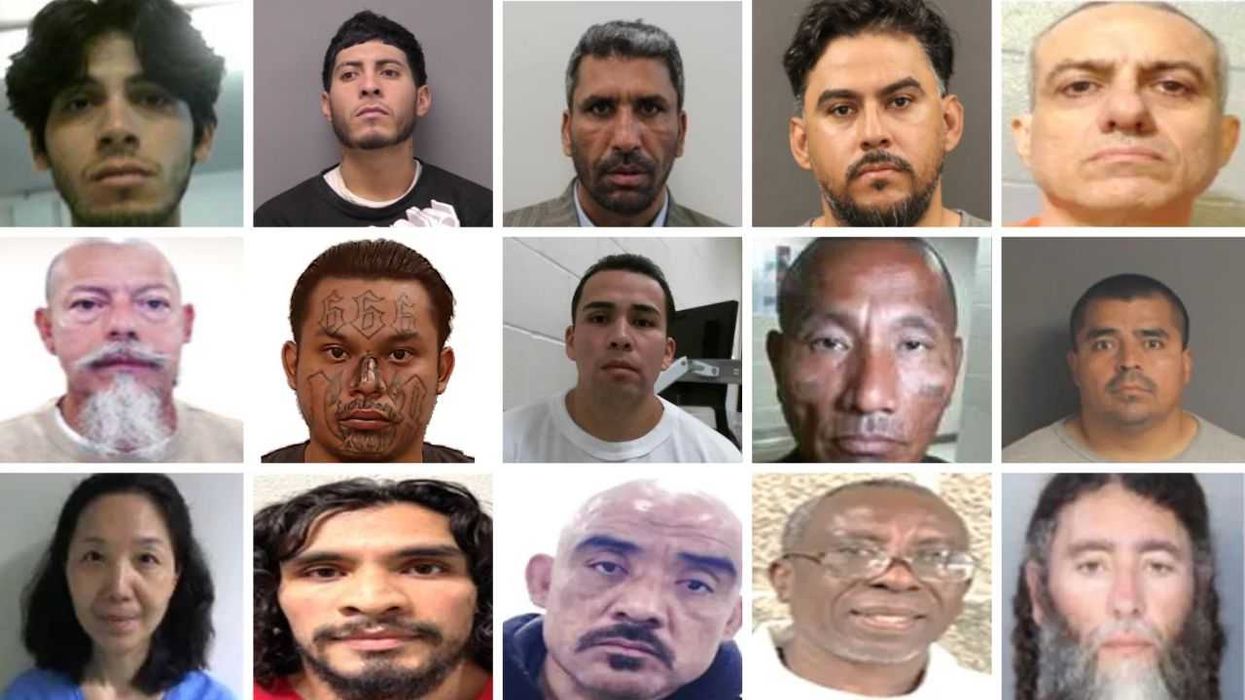The Arab Spring has paved an uncertain path for much of the Middle East. While some see the protests and subsequent toppling of governments that commenced in early 2011 as an encouraging sign of modernity and democracy on the horizon, critics have made their fears about an unsustainable future known.
With Islamist groups seeing an opportunity to capture political power, fears of increased theocratic governance -- particularly in Egypt -- have taken form. The nation's constitution, which is in the final stages of being drafted, is adding to the worries surrounding how shariah law might be implemented and enforced.
 Egyptian President Mohammed Morsi waves to the crowd gathered in a stadium upon his arrival for a speech on the 6th of October national holiday marking the 1973 war with Israel, Cairo, Egypt, Saturday, Oct. 6, 2012. Credit: AP
Egyptian President Mohammed Morsi waves to the crowd gathered in a stadium upon his arrival for a speech on the 6th of October national holiday marking the 1973 war with Israel, Cairo, Egypt, Saturday, Oct. 6, 2012. Credit: AP
With the Muslim Brotherhood and Salafists taking the majority of Egyptian parliament (around 75 percent) -- and with Mohammed Morsi, a Brotherhood member and the nation's first democratically-elected president -- there was never any doubt that Islamist ideals would be infused into the nation's fabric. That said, some are fearful regarding how intense religious law will become and how new regulations will impact Egyptian Copts and other minority groups.
In an op-ed by The New York Times' Roger Cohen, the paper's former foreign correspondent and editor, laid out his fears over a troubling line in the most recent version of the Egyptian constitution. Cohen called the issues pertaining the document "critical" and said that, because it's not often that constitutions are amended and changed, any problematic language must be grappled with before the proclamation is adopted.
 An Egyptian woman chants slogans criticizing the Islamist-dominated constitutional assembly while fellow protesters carry placards that read in Arabic "no for the constitution that will deprive me from working, no for article 36," during a protest in Cairo, Egypt, Tuesday, Oct. 2, 2012. Islamists are seeking to enshrine in Egypt's new constitution a number of articles that secularists and liberals fear would bring theocratic rule and severely set back civil liberties, including provisions empowering clerics to review laws and restricting women's rights. Credit: AP
An Egyptian woman chants slogans criticizing the Islamist-dominated constitutional assembly while fellow protesters carry placards that read in Arabic "no for the constitution that will deprive me from working, no for article 36," during a protest in Cairo, Egypt, Tuesday, Oct. 2, 2012. Islamists are seeking to enshrine in Egypt's new constitution a number of articles that secularists and liberals fear would bring theocratic rule and severely set back civil liberties, including provisions empowering clerics to review laws and restricting women's rights. Credit: AP
Here's how he framed the chaos surrounding the constitution and the ongoing unrest in Egypt:
There are ominous signs. The process, which should be as inclusive and transparent as possible, has been a stop-go fiasco from the moment Hosni Mubarak was ousted 20 months ago. The current 100-member constituent assembly is the replacement for an earlier one disbanded by court order; the parliament that appointed it has itself been disbanded. The military long tried to orchestrate the proceedings before conceding defeat, outmaneuvered by Islamists who now outnumber liberals among the drafters. Many women and most Coptic Christians form alarmed constituencies of the new Egypt.
Some liberals, who have formed a new party called Al Dostour, or “The Constitution,” believe a complete makeover is essential given the flaws. Egyptians, exhausted by the post-Mubarak rollercoaster, are often too weary to pay attention. You hear people say they are sick to the point they cannot even look at the news. Suspicion is rife.
Among the lines that has minority groups and women up in arms is article 68 of the constitution. It reads, "The state shall take all measures to establish the equality of women and men in the areas of political, cultural, economic and social life, as well as all other areas, insofar as this does not conflict with the rulings of Islamic Shariah."
It is the latter part of this statement that is sparking outrage and worry. While equality is called for in the opening lines of the article, the section also proclaims that it can only happen so long as it "does not conflict with the rulings of Islamic Shariah."
This is problematic -- especially if Islamists are in control, making the laws and ensuring their enforcement. If shariah is made to be malleable to theocratic goals and supportive of restrictive measures impacting women and minority groups, then the former portion of the article is null.
In a letter to the constituent assembly drafting the constitution, Human Rights Watch made its opposition to this provision clear:
As it stands, this article is not consistent with international human rights law and contradicts the provision in the draft constitution providing that “all citizens are equal before the law, equal in their rights and public duties, there shall be no discrimination between them on grounds of sex, origin, ethnicity, language, religion, belief, social status or disability.”
The choice of the term “rulings of Sharia” is particularly problematic. It is not clear why it should remain since there was a similar push by some members of the assembly for the inclusion of the identical phrase in article 2 and it was only after negotiations that agreement was reached to retain the term “principles of Sharia.” It even goes beyond the reservations Egypt entered to CEDAW upon ratification (articles 2, 9(2), 16 and 29).
Human Rights Watch recommends the Constituent Assembly delete the term “rulings of Sharia” to ensure a clear commitment by the state to gender equality in draft article 36.
Cohen agrees with HRW's sentiment and claims that the additional clause about shariah essentially means that the Egyptian constitution would be saying, "We commit to equality between the sexes except when we don’t." The journalist would like to see the line be dropped, however, this isn't the only controversial mention of the word "shariah" in the document. It's also present in article two, where it says that the "principles of Shariah are the main source of legislation."
 An Egyptian protester carries a placard that reads in Arabic, "the people wants to dissolve the constituent assembly," and sets fire to a picture of judge Hossam El Gheriany, chairman of the constituent assembly, during a protest in front of the State Council's headquarters in Cairo, Egypt, Tuesday, Oct. 9, 2012. Human Rights Watch on Monday urged the panel writing Egypt's new constitution to amend articles in the draft that the New York-based group says repress the rights of women and children and limit freedom of religion and expression. Credit: AP
An Egyptian protester carries a placard that reads in Arabic, "the people wants to dissolve the constituent assembly," and sets fire to a picture of judge Hossam El Gheriany, chairman of the constituent assembly, during a protest in front of the State Council's headquarters in Cairo, Egypt, Tuesday, Oct. 9, 2012. Human Rights Watch on Monday urged the panel writing Egypt's new constitution to amend articles in the draft that the New York-based group says repress the rights of women and children and limit freedom of religion and expression. Credit: AP
According to Cohen, there is a lack of clarity regarding what, exactly, this will mean in terms of governance. The main issue he highlights is that it's unclear who would be responsible for enforcing shariah law. Cohen further explains:
An earlier draft said the sole authority should be the clerics of Al-Azhar, the country’s supreme Islamic institution — an idea with the potential to set Egypt on an Iranian course. But the latest says merely that Al-Azhar should be “consulted,” a wording that should leave adjudication to lay courts.
Egypt's highest court, the Supreme Constitutional Court (SCC), has also lashed out at the constitution's drafting panel as well, highlighting that the document contrains the SCC's abilities and keeps it under the president's control -- an act that hampers an appropriate system of checks and balances.
The debate on all fronts continues, with numerous parties clamoring for the court to dissolve the constitutional committee once again. So far, such an action hasn't been taken. Either way, the situation remains contentious, with the potential to reignite mass fury in the region.
--
Related:

 Egyptian President Mohammed Morsi waves to the crowd gathered in a stadium upon his arrival for a speech on the 6th of October national holiday marking the 1973 war with Israel, Cairo, Egypt, Saturday, Oct. 6, 2012. Credit: AP
Egyptian President Mohammed Morsi waves to the crowd gathered in a stadium upon his arrival for a speech on the 6th of October national holiday marking the 1973 war with Israel, Cairo, Egypt, Saturday, Oct. 6, 2012. Credit: AP






